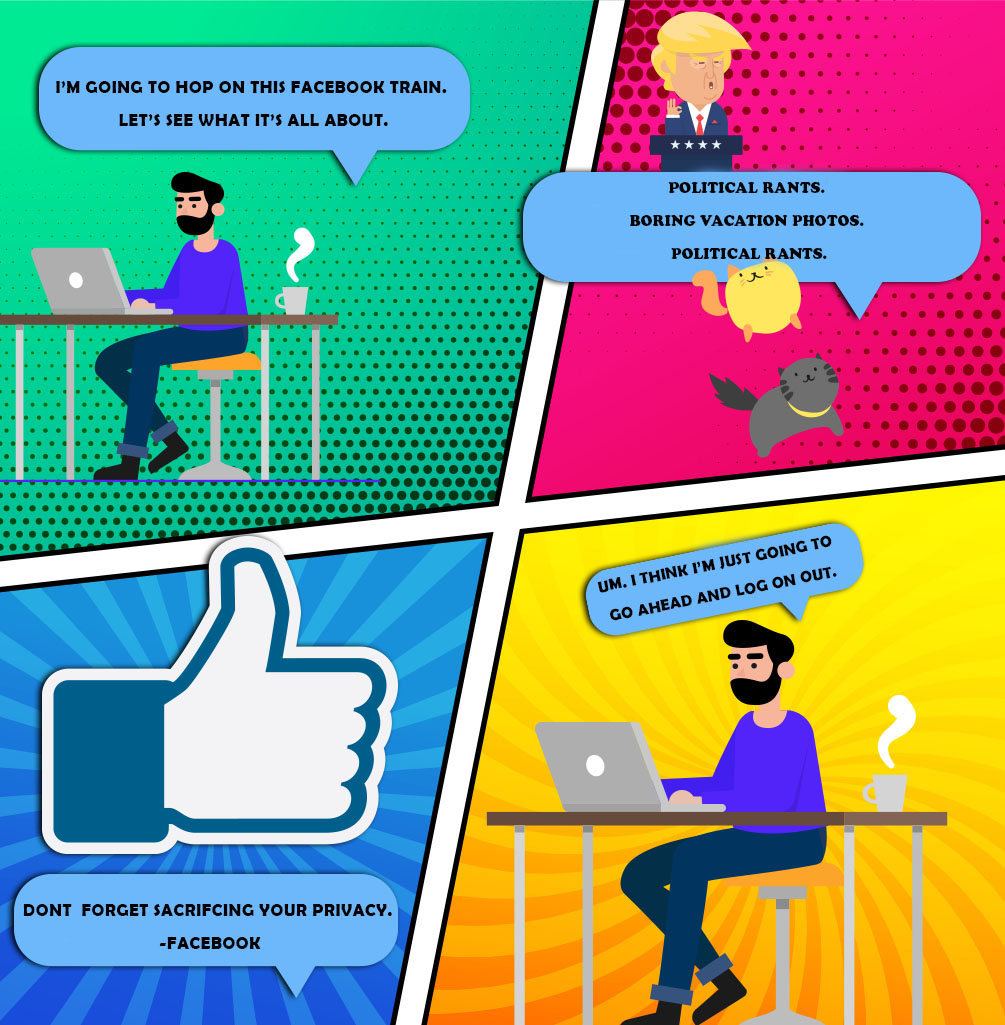In a relationship with Facebook, status: ‘It’s complicated’

“With great power comes great responsibility.” This quote has been attributed to everyone from Voltaire to uncle Ben Parker from Spider-Man. With everything that has surfaced in recent times regarding Facebook, however, many are questioning if the tech giant has the right to don the Spidey suit.
Facebook’s history with scandals is nothing new; CNET published an article in 2008 detailing the possibilities of user data harvesting. Subsequently, reports from as far back as 2010 showed the company failing to protect its user information from targeted advertising and data collection.
Eight years ago, The Wall Street Journal looked into the internal issues that plagued the site and found 25 instances of third-party app companies harvesting data information. The data extracted could be used to establish profiles that could then be used to determine how secure the user’s account was, as well as keeping a record of the user’s visited sites.
Though the main takeaway of this incident was that advertising agencies were collecting user data to target them with specific advertisements, it also opens the possibility of malicious users utilizing these methods to target civilians with identity theft or phishing sites.
In recent years, however, the tech giant has been in the news largely due to the Cambridge Analytica scandal, named after the political consulting firm of the same name. During the 2016 election, Cambridge Analytica, among many other data harvesting firms, had gathered user information through a variety of apps and sold them off to third-party political and corporate interests.
Among the uses of the information gathered, profiles were compiled and then used to develop and send targeted advertisements toward individuals based on personal preferences, or political ideology in an attempt to sway people’s votes. That data was not only used by the company but sold off to the highest bidders as well.
This has long been an accepted practice in marketing but had not yet been utilized in this manner for politics before. Users were finding their information gathered in these databases, even if their profiles were private, through the beliefs of the user’s public friends, – and filling in the blanks.
Users were not only afraid because their information was being collected and used to target them, but also the rather bizarre trends detailed in the strangely specific data. The information collected weighed the individual on a scale based on what’s known as the “Big Five” personality traits; agreeableness, neuroticism, openness to new experiences, extroversion, and conscientiousness.
For example, detailed in a summary of the scandal by Tech Republic, the group found such trends as liking “Juicy Couture” and “Adam Lambert” being commonplace among men who identified as gay, while liking “WWE” and “Being Confused After Waking Up From Naps” being common among those who identified as straight.
As well, Cambridge Analytica had found liking “curly fries” was indicative of having a high IQ, liking “sour candy” an indicator of not smoking, and liking “Gene Wilder” an indicator that a user’s parents likely had not separated by the time they were 21.
If this information is sounding eerily accurate or personal, you are not alone. The collected information was enough to send Facebook co-founder and CEO Mark Zuckerberg to Congress earlier this year in a testimony to senators regarding the company’s commitment to privacy.
While Zuckerberg claimed repeatedly to value user’s private information and went on record to state he would never find it acceptable for his own information to be published or sold without his permission, it remains to be seen whether he intends to actually honor his oath.
Facebook has become an almost necessary tool in the modern age. Artists use it to publish their works to large audiences, organizations use it to spread their message, and some use it to stay in contact with family or long-distance significant others. These users may feel locked into using the site, as though leaving it would be locking themselves out of a near-limitless audience or shunning their loved ones.
For those people, the only option may be to wait for a new platform to arise, one that rivals Facebook’s size and strength, as Facebook once did to MySpace, and hopefully values its user’s privacy. With luck, those audiences or loved ones could potentially migrate en masse. In the meantime, however, many have set their relationship status with the site as “It’s complicated.”

